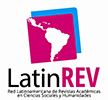Remote teaching
reflections on the supervised internship in times of a pandemic
ARK:
https://n2t.net/ark:/35231/pergaminho.v2n1.24Keywords:
Supervised internship, Technology, COVID-19, Remote LearningAbstract
Amid the pandemic scenario caused by COVID-19 and the mandatory social distance, education underwent emergency adaptations and the implementation of remote teaching was necessary. This readaptation affected all levels of education, including undergraduate courses, with emphasis on supervised internship disciplines in undergraduate courses. In this study, the objective was to show the experience of the Supervised Internship in Elementary School in Portuguese, carried out remotely by academics of the 7th period of the Letters Course at the State University of Maranhão, Zé Doca campus. Bibliographic research was used as methodological procedures, subsidized by the authors Buriolla (2003), Corrêa (2018), Rojo (2017), Brito (2020), Ribeiro (2020), among others and field research, carried out through a questionnaire, applied virtually, through Google Forms. The data showed positive and negative points of the internship in remote teaching, such as mastery of new technologies and teaching methodologies and lack of technological resources and quality connection, respectively. The internship in the midst of the pandemic was a challenging experience for the interns, however, it generated learning and triggered many reflections on issues such as frequency, whether in the way of evaluating and mainly, in the way of considering the external factors that are involved in the learning process.
Downloads
References
ANTUNES, Celso. Professores e professauros: reflexões sobre a aula e prática pedagógica diversas. 9ª ed. Petrópolis, RJ: Vozes, 2014.
BRASIL. Ministério da Educação, Conselho Federal de Educação: Parecer 292/62, de 14 de novembro de 1962 – Fixa a parte pedagógica dos currículos mínimos relativos aos cursos de licenciatura. Relator: Valnir Chagas. Brasília: Documenta n. 10, 10 dez. 1962.
BRASIL. Base Nacional Comum Curricular. Brasília: MEC, 2017. Disponível em: http://basenacionalcomum.mec.gov.br/images/BNCC_20dez_site.pdf. Acesso em: 21 dez. 2020.
BRASIL. Lei de Diretrizes e Bases da Educação Nacional, LDB. 9394/1996. Disponível em: http://www.planalto.gov.br/ccivil_03/leis/l9394.htm. Acesso em: 12 dez. 2020.
BRASIL. Ministério da Educação. Disponível em: https://www.in.gov.br/en/web/dou/-/portaria-n-343-de-17-de-marco-de-2020-248564376. Acesso em: 05 jan. 2021.
BRASIL. Portaria Nº 544, de 16 de junho de 2020. Disponível em: https://www.in.gov.br/en/web/dou/-/portaria-n-544-de-16-de-junho-de-2020-261924872. Acesso em:12 jan. 2021.
BRITO, Karina Lima; SILVA, Luciana Vilaça. Ficção e Realidade: TIC e dualidade escolar. In: BARRETO, Raquel Goulart. Tecnologias e trabalho docente: entre políticas e práticas. Petrópolis, RJ, de Petrus et Alii; 1 edição, Rio de Janeiro, RJ: FAPERJ, 2014.
BURIOLLA, M. A. F. O estágio supervisionado, São Paulo, Cortez, 1995.
CORRÊA, Manoel Luiz Gonçalves. Notas sobre letramentos, gêneros do discurso e (novas) Práticas de Leitura e Escrita na Internet. In: ABREU-TARDELLI, Lília Santos; KOMESU, Fabiana. Letramento e Gêneros Textuais/Discursivos: aproximações e distanciamentos. Belo Horizonte: Editora PUC Minas, 2018.
FRANCO, Maria Amélia do R. S. Pedagogia e prática docente. São Paulo: Cortez, 2012.
FREIRE Ana Maria. Concepções orientadoras do processo de aprendizagem do ensino nos estágios pedagógicos. Colóquio: modelos e práticas de formação inicial de professores, Faculdade de Psicologia e de Ciências da Educação, Universidade de Lisboa. Lisboa, Portugal, 2001. Disponível em: http://www.educ.fc.ul.pt/recentes/mpfip/pdfs/afreire.pdf. Acesso em: 12 jan. 2021.
FREIRE, Paulo. Cartas a Cristina: reflexões sobre minha vida e minha práxis. São Paulo: Editora: Paz & Terra; 3ª edição, 2012.
MARANHÃO. Resolução N.º 1369/2019-CEPE/UEMA. Disponível em: https://www.prog.uema.br/wp-content/uploads/2015/03/Resolu%C3%A7%C3%A3o-n%C2%B0-1369-2019-%E2%80%93-CEPE-UEMA.pdf. Acesso em: 27 dez. 2020.
MARANHÃO. Resolução N.º 1264/2017 - CEPE/UEMA. Disponível em: https://www.prog.uema.br/wp-content/uploads/2016/05/Resolu%C3%A7%C3%A3o-n%C2%BA-1264-2017-CEPE-UEMA.pdf. Acesso em: 12 jan. 2021.
MARANHÃO. Resolução N.º 1422/2020-CEPE/UEMA. Disponível em: https://www.prog.uema.br/wp-content/uploads/2014/03/Resoluc%CC%A7a%CC%83o-C-n.%C2%BA-1422-2020-CEPE-UEMA-estabelece-procedimentos-e-regras-a-serem-adotados-para-retorno-de-esta%CC%81gio-pra%CC%81ticas-e-defesa-TCC.pdf. Acesso em: 12 jan. 2021.
Moreira, J. A.; Schlemmer, E. (2020). Por um novo conceito e paradigma de educação digital online. Revista UFG, V.20, 63438. Disponível em: https://www.revistas.ufg.br/revistaufg/article/view/63438/36079. Acesso em: 21 set. 2021.
RIBEIRO, Ana Elisa Ferreira. Letramento digital e ensino remoto: reflexões sobre práticas. Debates em Educação. Maceió, Vol. 12, Número Especial 2, 2020. Disponível em: https://www.seer.ufal.br/index.php/debateseducacao/article/view/10757/pdf. Acesso em: 03 jan. 2021.
ROJO, Roxane. Entre Plataformas, Odas E Protótipos: Novos Multiletramentos em tempos de web21. The Especialist: Descrição, Ensino e Aprendizagem, Vol. 38 nº. 1 jan-jul 2017. Disponível em: https://revistas.pucsp.br/index.php/esp/article/view/32219. Acesso em: 12 dez. 2020.
WHO. World Health Organization. Disponível em: https://www.who.int/emergencies/diseases/novel-coronavirus-2019. Acesso em: 13 dez. 2020.
Downloads
Published
How to Cite
Issue
Section
License
Copyright (c) 2022 Andreza Luana da Silva Barros, Claudiene Diniz da Silva

This work is licensed under a Creative Commons Attribution-NonCommercial 4.0 International License.


